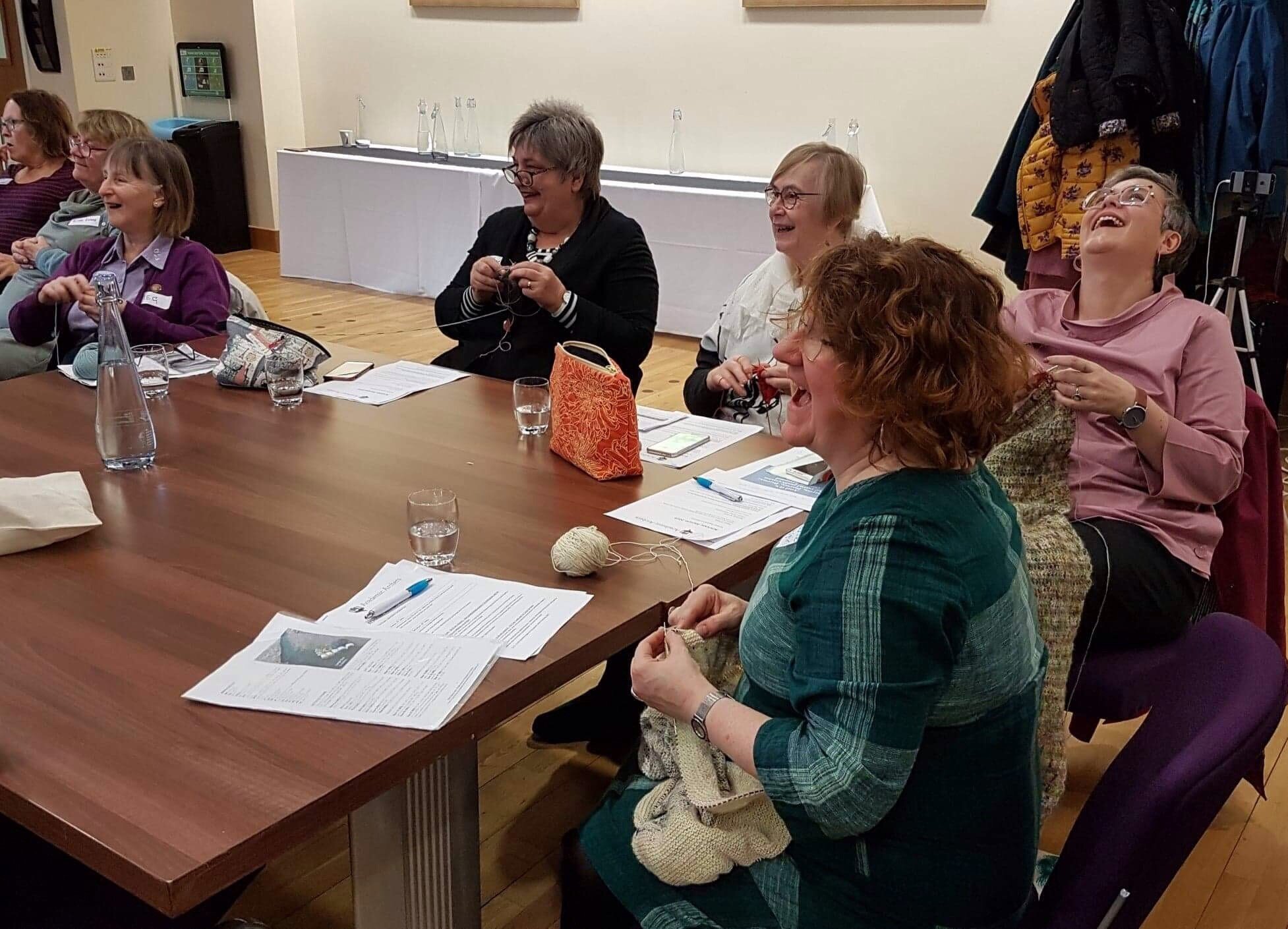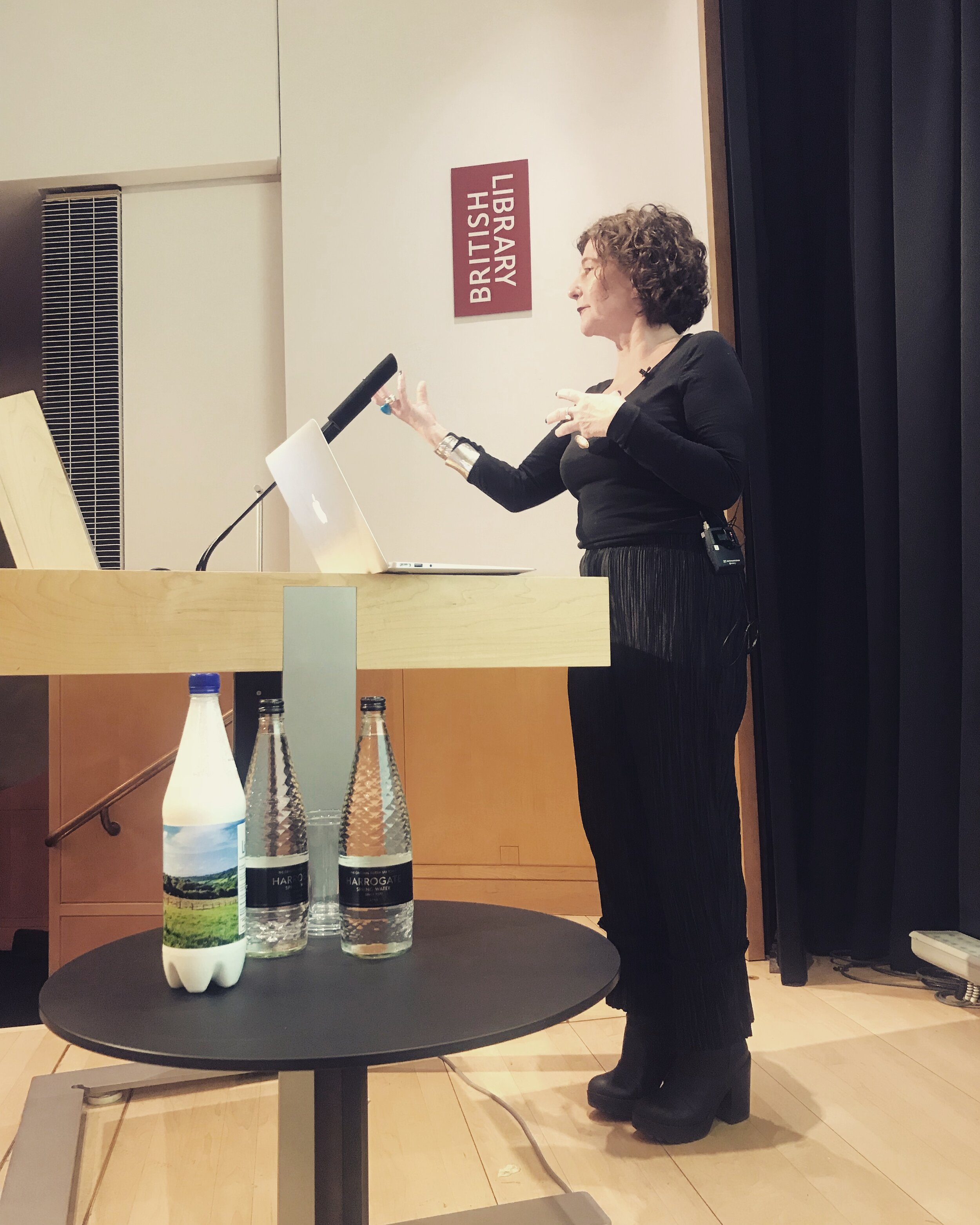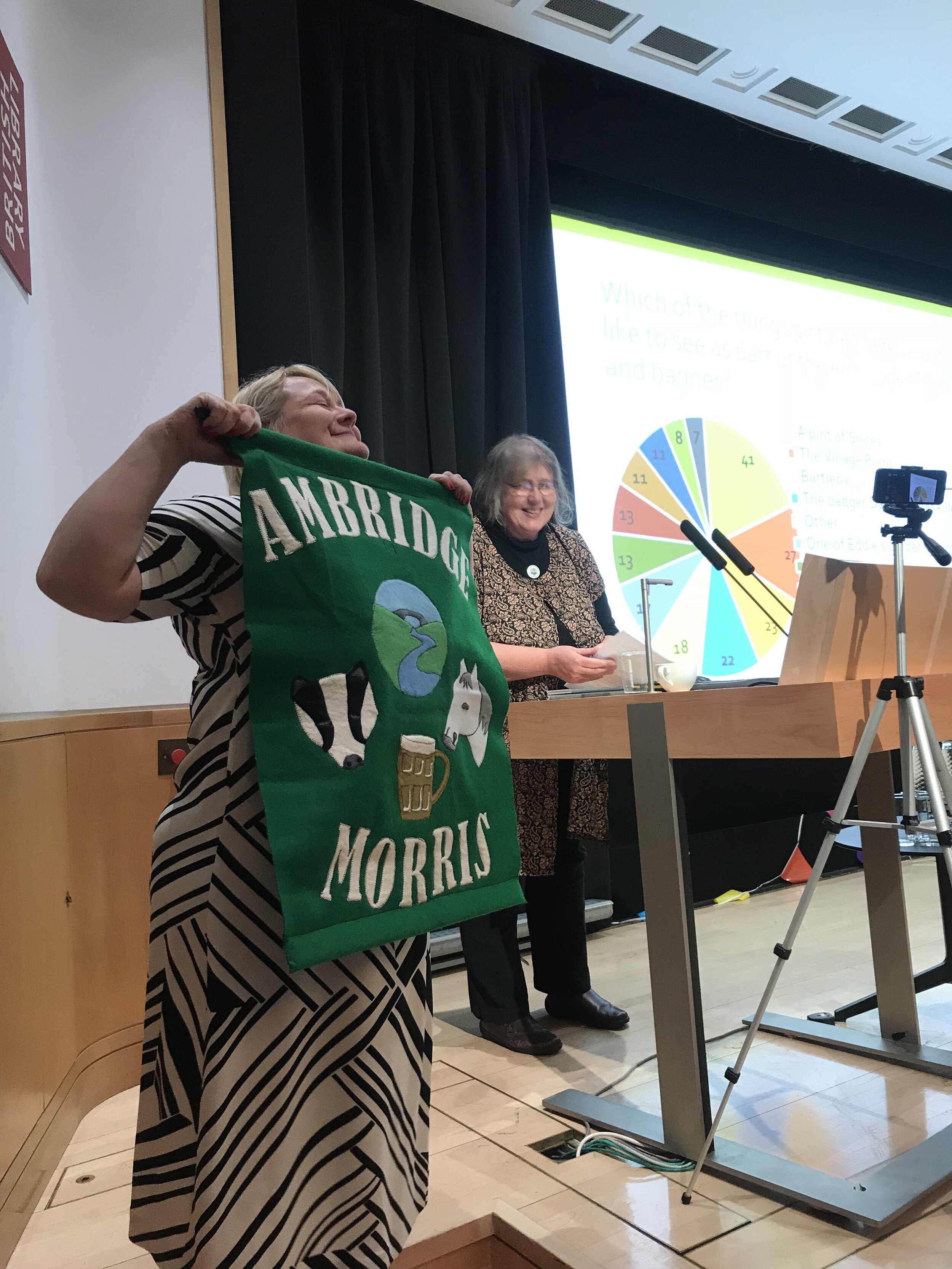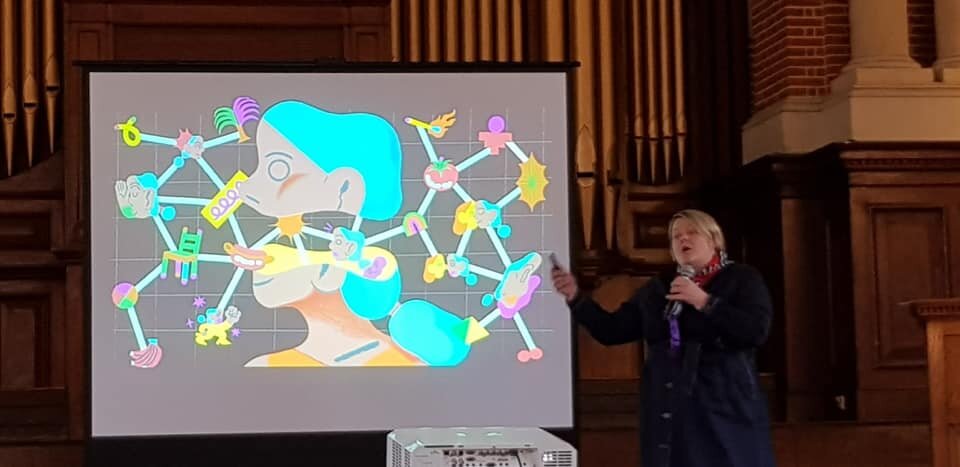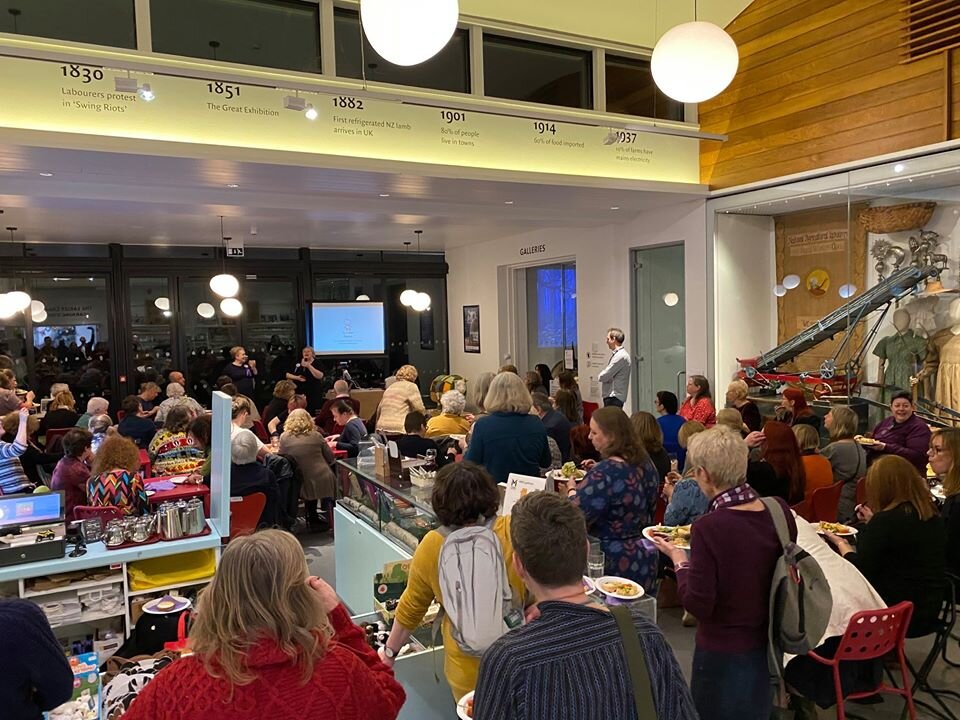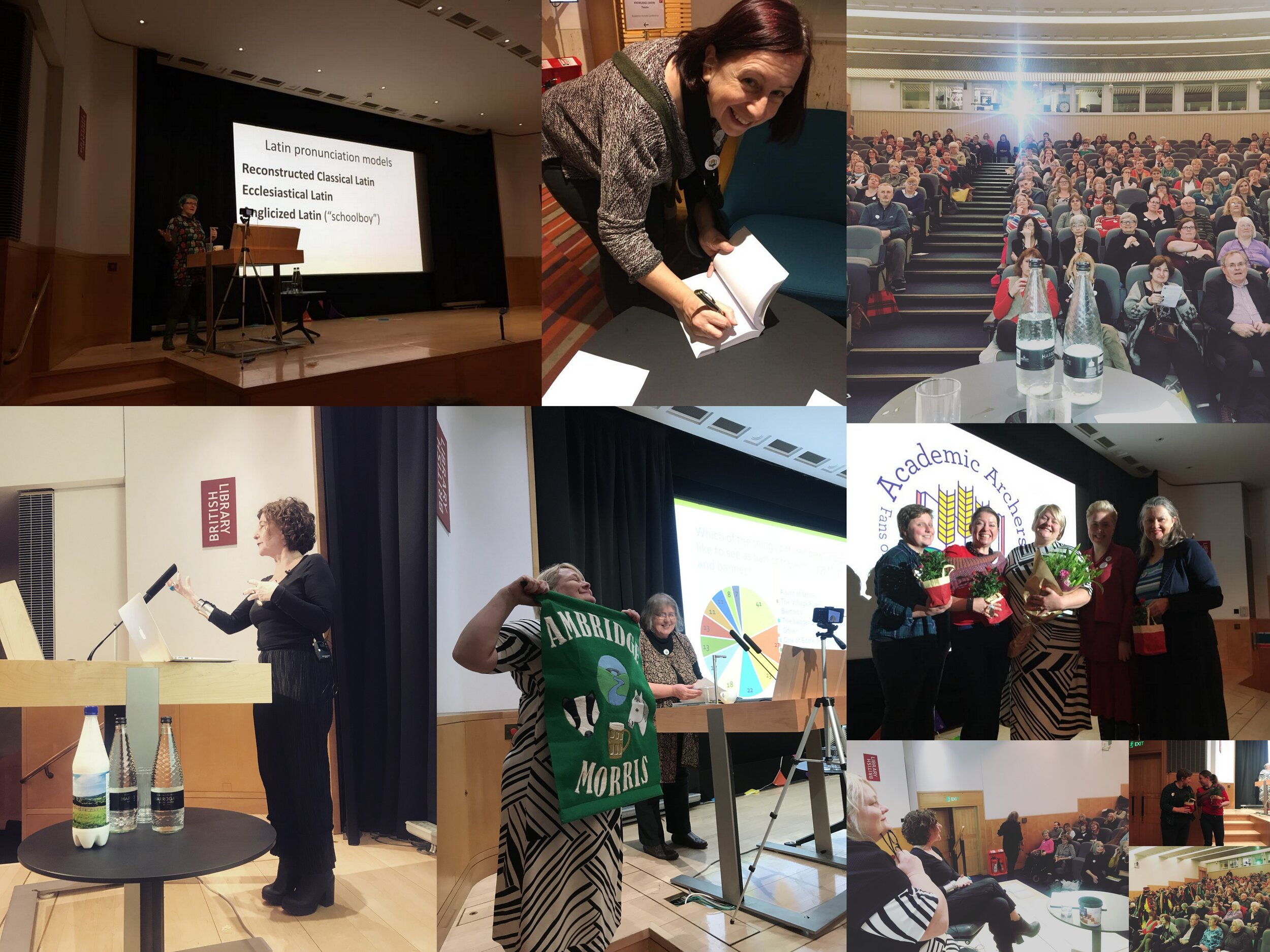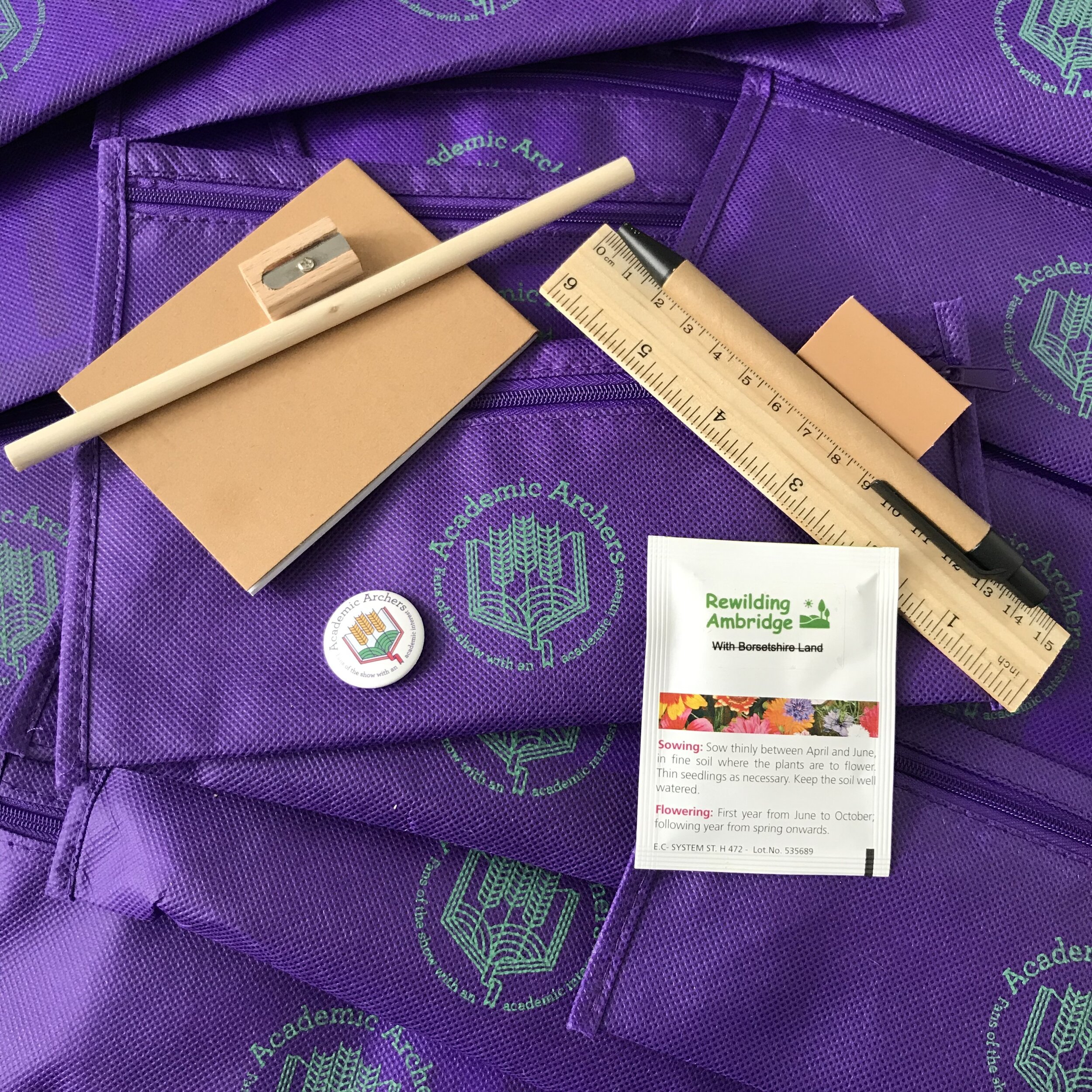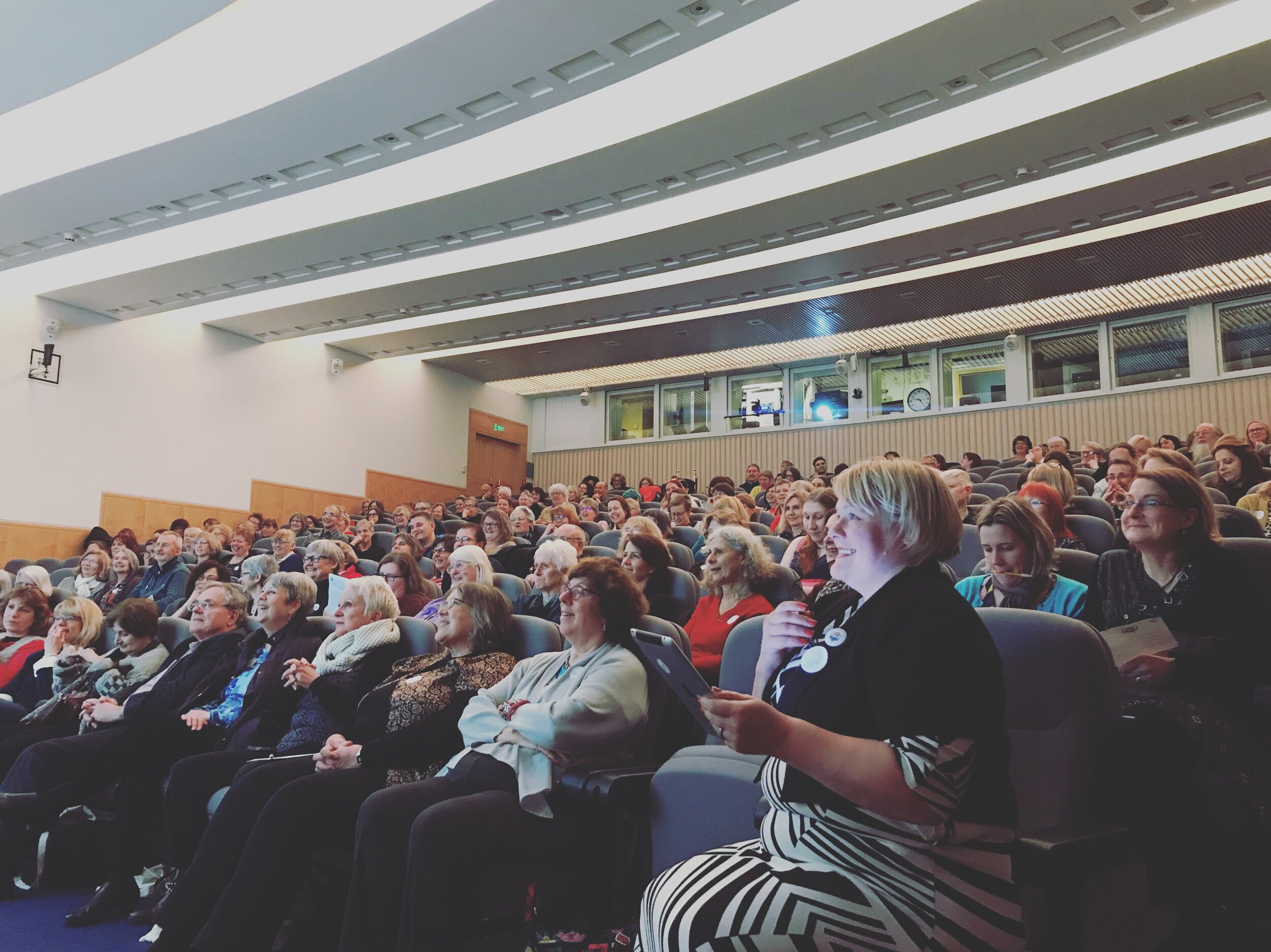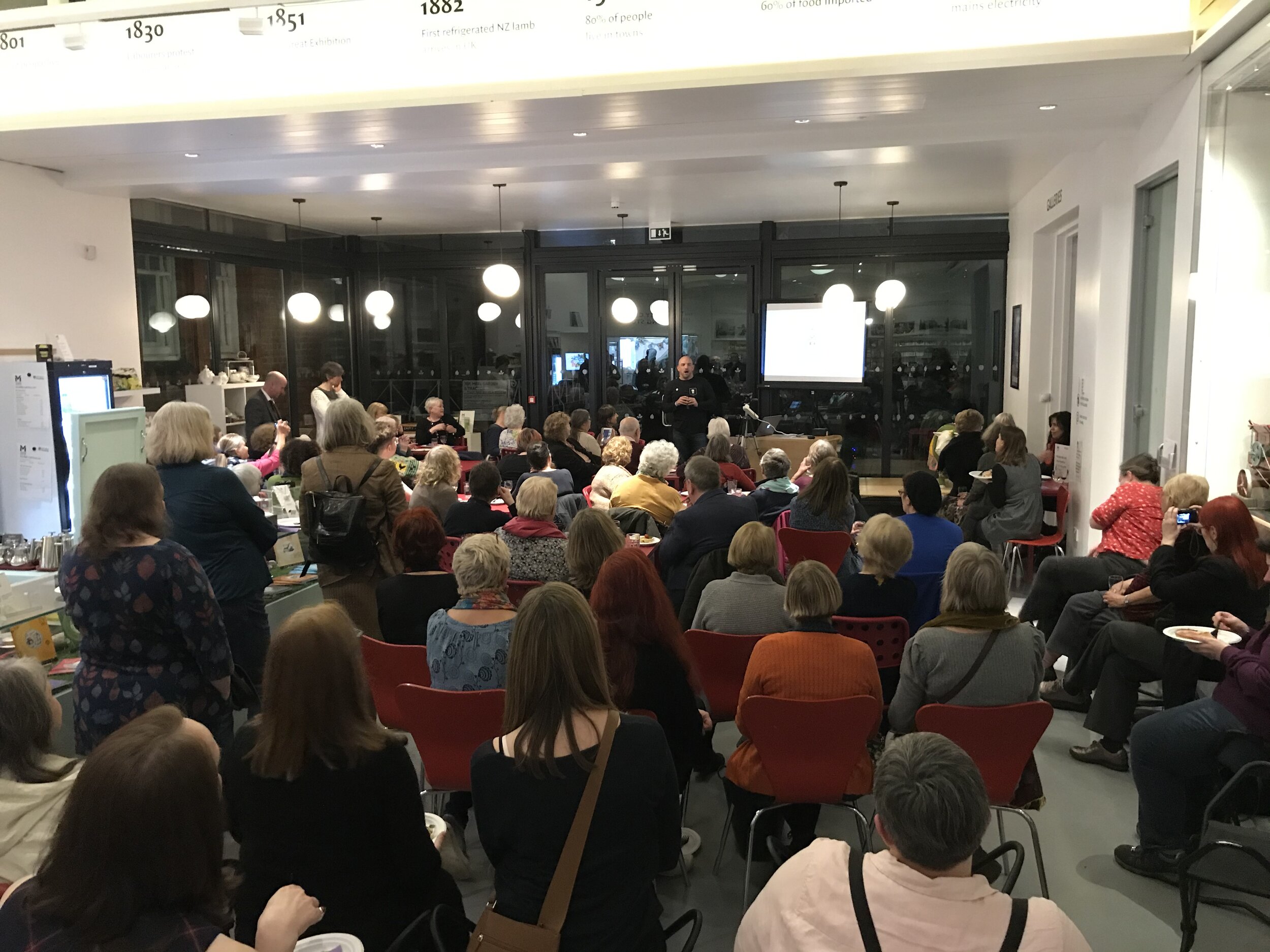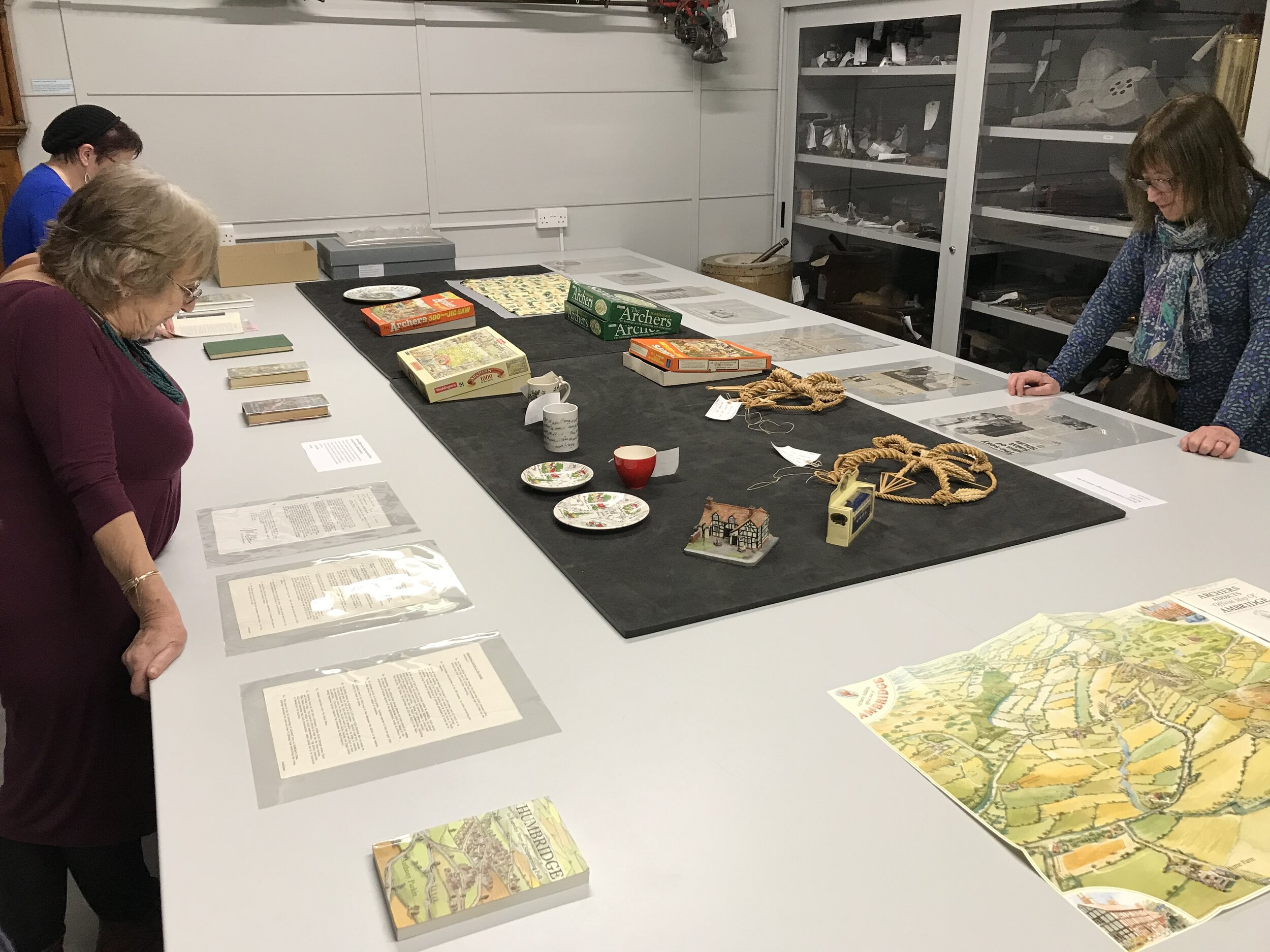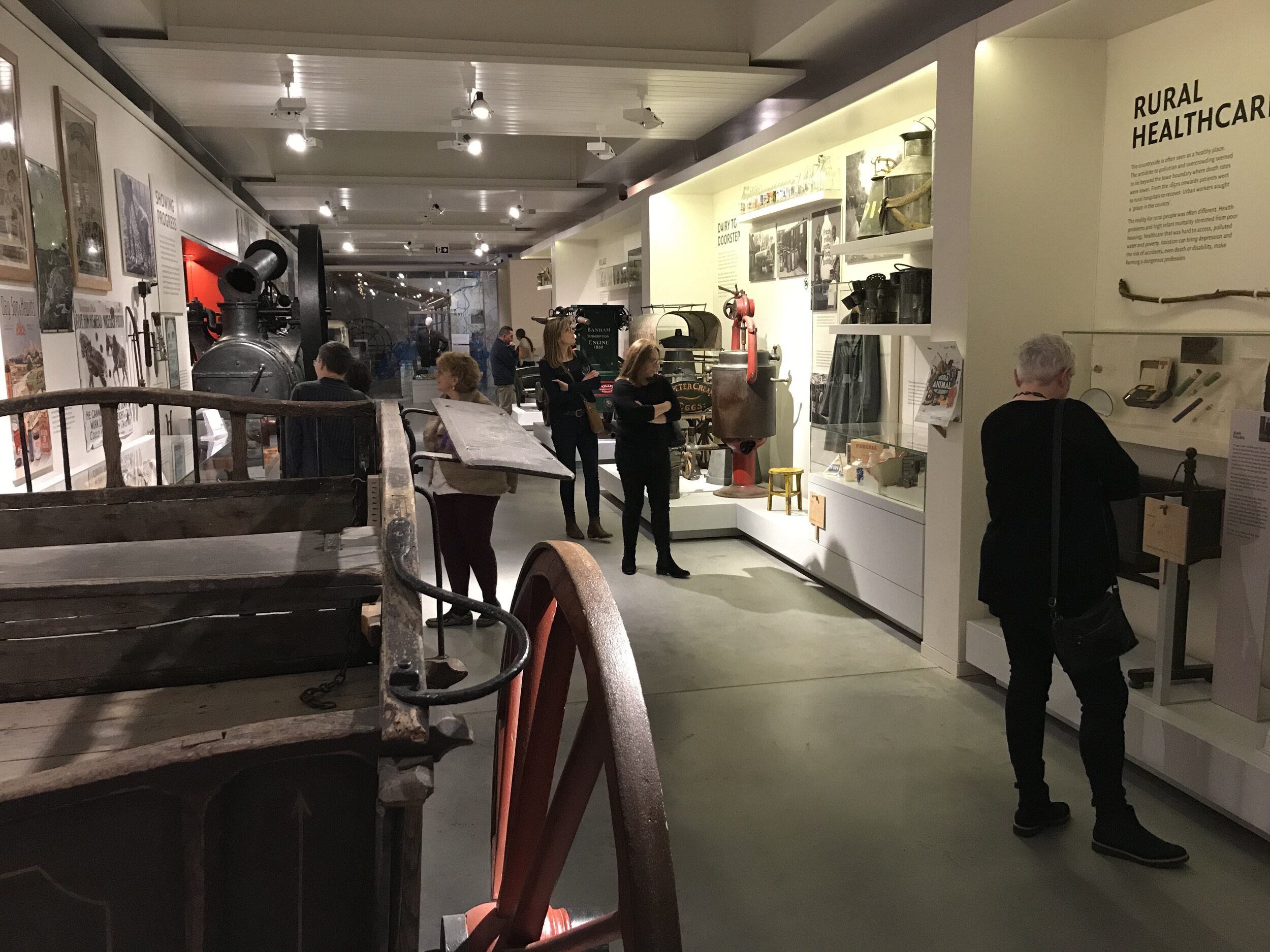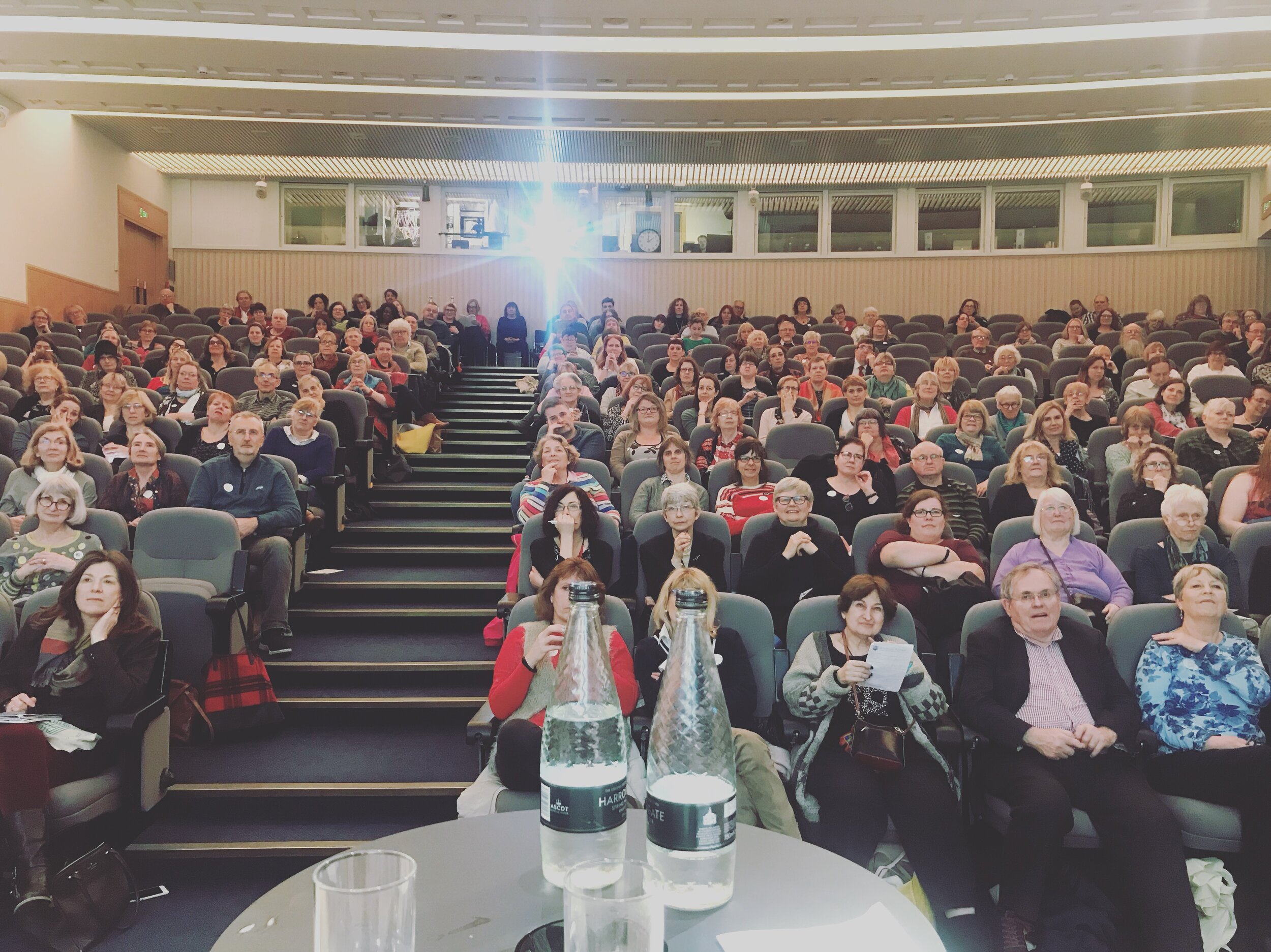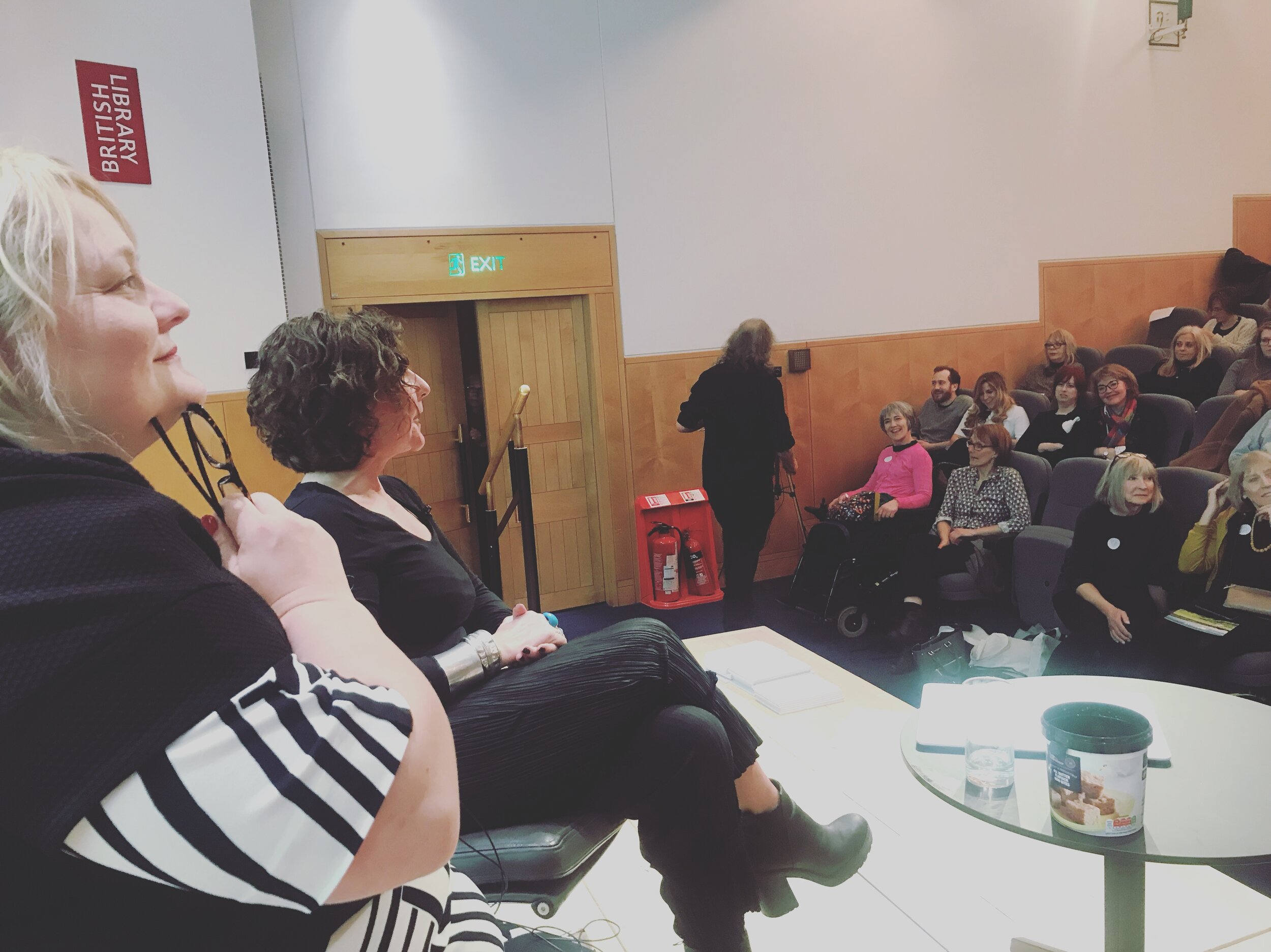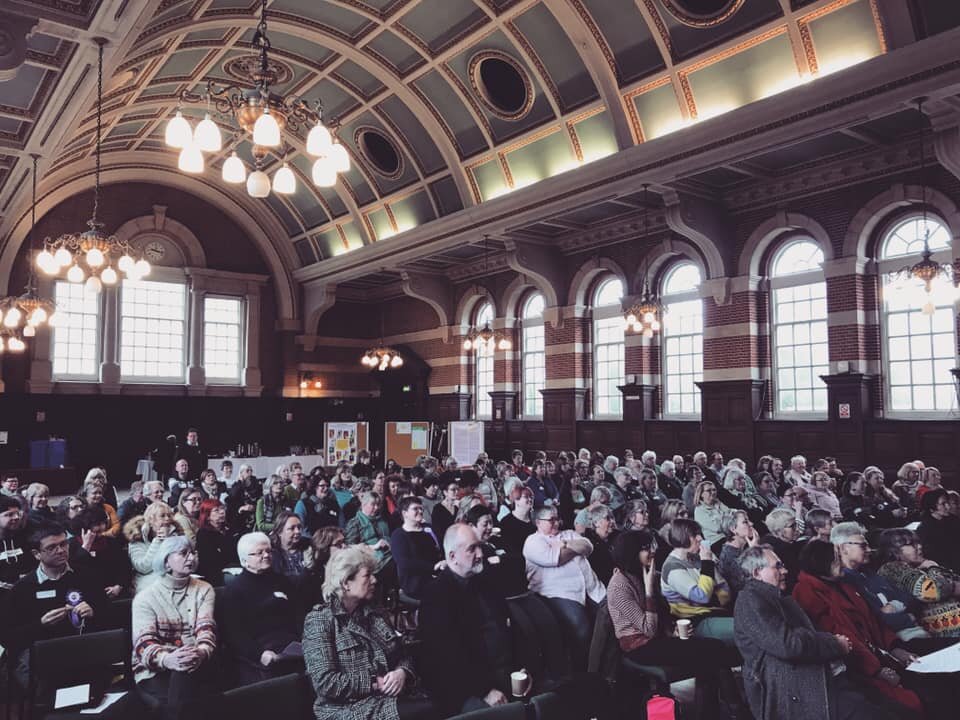We have been gathering each year for our Academic Archers conferences since 2016, and in that time had over 200 speakers, 1500 attendees, and many, many G+T’s.
Here you will find a precis of each conference and links to conference films, and all films can be found on the Academic Archers YouTube channel.
2020 conference - University of Reading
Our after dinner speaker on the Saturday night was DumTeeDum’s hilarious and erudite Lucy V Freeman. Listen to a recording of her Year in Ambridge here.
The Academic Archers MERL Take Over, Friday 6 pm to 8.30 pm
Welcome Reception, The Museum of English Rural Life.
Join us for the opening reception of the 2020 and fifth Academic Archers conference as we take over the Museum of English Rural Life for the evening! We have planned a pop-up exhibition of all things The Archers in its collection, a tour of its galleries, and a buffet dinner (and a special guest TBC!)
Academic Archers 2020, Saturday 9 am - 5.30 pm, Sunday, 9.30-12
9 – 9.15 Welcome from Dr Cara Courage and Dr Nicola Headlam, and Academic Archers Assembly 1
Session One: Family - Power and Influence
9.15 - 9.45 Keynote: The 2020 network. One in, One Out, Dr Nicola Headlam
9.45 - 10 Parents, siblings, and the pursuit of power: Predicting the future leaders of Ambridge, Timothy Vercellotti, Professor of Political Science, Western New England University
10 - 10.15 ‘From the moment those two joined the committee it’s been grunge bands, sumo wrestlers and souffle competitions’ - What Ambridge’s civil society says about UK politics in 2019, Amy Sanders, PhD student, Cardiff University
10.15 - 10.30 “If you have security, Ed, that is everything”. Deconstructing ‘security’ as a buffer against life’s challenges, Lalage Cambell, retired Principal Lecturer, Reader and Head of Department of Applied Psychology at Cardiff Metropolitan University
10.30 – 10.45 The law of the land, land law and family dynamics in The Archers, Elizabeth Campion, Master of Laws at the University of Cambridge
11.00 - 11.15 Archers Assembly 2
Session Two Family dynamics - wellbeing and mental health
Talking Cures
11.30 - 11.45 “They Needed Counselling”, Karen Pollock, psychotherapist specialising in Gender, Sexuality and Relationship diversity
11.45 - 12 The healing powers of everyday country folk: The Archers? Better than therapy!, Dr Fiona Starr, Clinical Psychologist and an Associate Professor of Clinical Psychology at Middlesex University in London
Ageing in Ambridge
12 - 12.15 Psychological Wellbeing in Retirement: What The Archers tell us, Bronwen Williams, mental health nurse
12.15 - 12.30 Can’t Afford the Laurels? - Care Provision in Ambridge in 2041, Ruth Heilbronn and Rosalind Janssen, UCL Institute of Education
12.30 - 12.45 Why are the residents of Ambridge so financially gullible and what can we do about it??, Prof Joanna Gray, Birmingham Law School
12.45 - 12.55 Archers Assembly 3
Session Three: the fandom panel
2.10 - 2.25 Fans, Flouncers, Fundamentalists: Customs and belief systems of The Archers online fanbase, Claire Astbury
2.25 - 2.40 Cult and Culture: Transformative Fandom de dum de dum de dum, Helen Burrows, retired senior lecturer and practitioner in Social Work
2.40 - 2.55 Gauging Guerrilla Academia – Exploring the impact of the ‘Academic Archers’ conference, Prof Carenza Lewis, University of Lincoln
2.55 - 3.10 When the Script Hits the Fan: When Archers fans stop listening – and why they can’t completely keep away, Dr Sarah Kate Merry, Coventry University
3.10 - 3.25 “I hate The Archers because…” - a conference intervention, Dr Jerome Turner
Session Four: Intertextual Lucky Dip
4.10 – 4.25 Rude mechanicals– Professional representations of the ‘amateur’ in The Archers Pantomime, Professor Emeritus Hamish Fyfe, University of South Wales
4.25 - 4.35 Baddies in wheelchairs and the Disneyfication of Disability, Dr Pauline Eyre
4.35 - 4.45 An overview of management styles in the Archers with a discussion of Douglas McGregor’s management Theory X and Theory Y to the Ambridge workforces, Lucinda Bufton
4.45 - 5 DumTeeDum singalong recording, Academic Archers 2020 Conference Award Ceremony
session 5: Sunday Best
9.15- 9.25 Bringing Ambridge to an Ancient Egyptian Village, Rosalind Janssen, UCL Institute of Education
9.25 – 9.35 Ambridge vs. Springfield, Gary Gilday
9.35 -9.50 A divided village: a narrative study using a theoretical lens of speculative ontology, M Bartlett
10.00 - 11.15 Live Listen, Sunday The Archers Omnibus – and world record attempt at the Tweetalong (tea and coffee available – wandering about encouraged)
11.15 – 11.30 So you want to be a vicar?, Revd Dr Jonathan R Hustler
11.30 Conference closes, exit all by 12 pm
2019 conference - University of Sheffield
9.15 am – 10.35 Session 1 - Agri-business/Agro-business: The professional and the political of Ambridge enterprises
9.15 – 9.35, What to do when you’re no longer Borsetshire’s Business Person of the Year or How to handle a scandal, Olivia Vandyk, Communications Strategist
9.35 – 9.55, Borsetshire Businessman or Feckless Farmer?, Christine Narramore, Armchair Soil Scientist
10.15 – 10.35 , Is Ambridge Parish Council fit for purpose? The Localism Act (2011) and its impact on decision-making and governance in a small rural community, Christine Michael, Editor, The Ambridge Observer
10.35 – 11.25 Session 2 - Hot Fuzz: Crime and the Causes of Crime
10.35 – 10.55, And it’s Burns, Burns, Burns: The rural policeman comes around, Charlotte Bilby, Reader in Criminology, Northumbria University
10.55 – 11.15, ‘We Should have called him Damien.’ A discussion of the impact of Henry Archer’s early years on potential crimes of the future, Nicola Maxfield, Curriculum Manager for Health, Public Services and Education, Alton College
11.45 – 12.35 Session 3 – Women of Ambridge Redux: Sisters are doing it for themselves?
11.45 – 11.55, Queering Shula, Karen Pollock, Psychotherapist specialising in Gender, Sexuality and Relationship Diversity
11.55 – 12.05, Engineers as earth mothers: can fiction plough a furrow for female participation?, Fiona Gleed, Department of Architecture & Civil Engineering, University of Bath
12.05 – 12.15, The pipeline of future UK scientists: Ambridge and the STEM gender imbalance, Jane Turner, Director Primary Science Quality Mark, University of Hertfordshire and Clare Warren, PhD student, University of Hertfordshire
12.15 – 12.35, ‘Almost without exception they are shown in their relation to men’: Ambridge women and their conversations, Sarah Kate Merry, Research Associate, Centre for PostDigital Cultures, Coventry University
12.35 – 12.45, ‘Oh baby!’ Unplanned pregnancy and a woman’s right to choose, Carolynne Henshaw, Pregnancy Services (former)
‘This isn’t about curry, Alistair’: Shula Hebden-Lloyd and Iris Murdoch on Love, Hannah Marije Altorf, Reader in philosophy, St. Mary’s University
2.30 – 3.30 Session 5 - Rural Identities: The cultural world of Ambridge
2.30 – 2.40, A History of Ambridge in 100 Objects, Felicity Macdonald-Smith, University administrator (retired), collections volunteer at the David Parr House
2.40 – 2.50, Queering Lower Loxley, Dr Cara Courage, Tate
2.50 - 3 pm, The church flower rota; so who is doing the flowers these days?, Felicity Hall Postgraduate Programmes Administrator, V&A
3.20 – 3.30, Ambridge: All the World’s a Stage?, Nicola Boyle, Teaching Fellow, Harlaxton College
Are you actually related? A linguistic family case study of the male Grundys, Rob Drummond, Senior Lecturer in Linguistics and Head of Youth Language, Manchester Metropolitan University
3.30 – 3.50 Afternoon break
3.40 – 5.20 Session 6 - Rural Identities 1: Towards a sociology of Ambridge life
5.20 pm – 6.05, Session 7 – Potpourri and DumTeeDum singalong recording
5.20 – 5.30, New Zealand – antipodes or alter ego?, Katharine Hoskyn, Auckland University of Technology, New Zealand
5.40 – 6 pm, Pint of Shires, the Elixir of Youth?, Sara Long, Aneurin Bevan University Health Board
6 pm – 6.05, DumTeeDum singalong recording
SUNDAY, 7TH APRIL
9.40 – 10 am, From kitchens to smartphones: Updating our understanding of The Archers listening practices in the digital age, Jerome Turner, Research Assistant, Birmingham Centre for Media and Cultural Research, Birmingham City University
10.00-11.15 Live Listen, Sunday The Archers Omnibus – and world record attempt at the Tweetalong
11.15 – 12.35 Session 8 – Post-mortem: Live long and prosper?
11.25 – 11.45, Not with a bang, but with a whimper?’: attitudes to death and dying in The Archers, Abi Pattenden, Chair, Membership Committee, National Association of Funeral Directors
11.45 – 12.15, Death at Ambridge Hall: How the Archers demonstrates the impact on owners when they lose animals, Bronwen Williams, Researcher
12.15 – 12.35, A series of unfortunate events? Mortality and medical incident in a small Borsetshire village, Rob Stepney, Writer/journalist
2018 conference - British Library
All the papers can be found on our YouTube channel. A huge thank you to John Popham for his tireless AV work for us.
The programme.
Session One: Ambridgonomics - Planning and Economic Development in Ambridge
Part 1: The Housing Crisis in Borsetshire
Rich Relatives or Ambridge Fairy? Patronage and expectation in Ambridge housing pathways, from Claire Astbury, Head of Housing Strategy & Development at Luton Borough Council
Staying in the Spare Room: Social Connectedness and Household Co-residence in The Archers, from Paula Fomby, Research Associate Professor in the Survey Research Center and Population Studies Center, Institute for Social Research, University of Michigan
Part 2: Placemaking and shaping
Set in aspic?: Ambridge rural placemaking in a place of contested politics and conflicted identity, from Dr Cara Courage
Can rural proofing make life in Ambridge better?, from Sally Shortall, Duke of Northumberland Professor of Rural Economy at Newcastle University and Anne Liddon, Science Communications Manager, Centre for Rural Economy, Newcastle University
Session Two: Wildcards
Ambridgology and Counter-insurgency doctrine, from James Armstrong, political advisor to the NATO Senior Civilian Representative in Afghanistan
Heavy Petting: An Examination of Metaphoric Relationships with Pets, from Rachel Daniels, Deputy Head and Group Leader, Barrington Library, Cranfield University, and Dr Annie Maddison Warren, Senior Lecturer in Information Systems, Centre for Electronic Warfare, Information and Cyber, Cranfield University
Session Three: Said and Unsaid
Jim Lloyd: Quomodo Latine loqui facit? [how does he speak/pronounce Latin?], from Dr Catherine Sangster, ex BBC Pronunciation Unit
Foucault, Freda Fry and the power of silent characters on the radio, from Rebecca Wood, Honorary Research Fellow at the University of Birmingham in the Department of Disability, Inclusion and Special Needs
Accent and identity in Ambridge, from Dr Rob Drummond, Senior Lecturer in Linguistics at Manchester Metropolitan University
Session Four: Wildcards
Their Names Liveth Forevermore: Recreating the Ambridge War Memorial, from Dr Jessica Meyer, University of Leeds
Unique Borsetshire climate or exemplary sun protection?, from Dr Nicola Boyle, Harlaxton College, Dr Tanya Bleiker, Clinical Vice President of the British Association of Dermatologists, Dr Nick Levell, dermatologist and Nina Goad.
The Morris in The Archers – and The Archers in The Morris, from Helen Burrows, social worker.
Session Five: Ambridgistas - Women of Ambridge
Part 1: Lives of Ambridge Women
Does The Archers reflect contemporary values on gender, and sexuality?, from Bill Pitt, social researcher
‘I am woman, hear me roar - and now watch me play cricket!’, from Katharine Hoskyn, Auckland University of Technology
Sow’s ears and silk purses: upcycling and The Archers, from Madeleine Lefebvre is Chief Librarian of Ryerson University in Toronto
Strong or Silenced? The Under-Representation of Mental Health Problems in Ambridge's Women, from Elizabeth Campion, University of Cambridge
Part 2: Women’s Talk?
In praise of gossip – why tongue-wagging and the rumour mill are important in Ambridge, from Louise Gillies, King’s College, London
Neighbourhood Watch: Gossip, Power and the Working-Class Matriarch in The Archers, from Claire Mortimer, University of East Anglia
Discussant, Charlotte Martin (actor) aka Dr Charlotte Connor (Research Psychologist).
Session Six: Pot Pouri
It’s Not Cricket: Fibbing in The Archers, from Dr Ruth Heilbronn and Dr Rosalind Janssen, University College London, Institute of Education
Fear, fecklessness and flapjacks: imagining Ambridge’s offenders, from Charlotte Bilby, Reader in Criminology, Northumbria University
Paths to the polling station at the village hall: Social networks and voting in Ambridge, from Dr Timothy Vercellotti, professor of political science, Western New England University in Springfield, Massachusetts
2017 conference - University of Lincoln
A huge thanks due to the University of Lincoln team for the livestreaming of the conference, the use of their radio station for down the line interviews, and for the films of the sessions, now all on YouTube.
Genteel Country Hobbies?: In the first session of the Academic Archers Conference 2017 Professor Carenza Lewis, Dr Nicola Headlam and Dr Cara Courage introduce the conference followed by Rachel J. Daniels & Annie Maddison Warren, Joanna Dobson, and Christine Michael present the topic genteel country hobbies.
Educating Ambridge: In the second session of day one of the Academic Archers Conference 2017 Madeleine Lefebvre, Jane Tuner and Dr. Grant Bage, and Felicity MacDonald-Smith discuss Educating Ambridge.
The Geography of Ambridge: In the third session of the Academic Archers Conference 2017 Dr. Angela Connelly, Fiona Gleed, and Tom Nicholls discuss the Geography of Ambridge.
Helen'n'Rob: Session four of the Academic Archers Conference 2017 looks at the relationship between Helen and Rob. Speakers include Katherine Runswick-Cole & Becky Wood, Amber Medland, Elizabeth Campion, and Dr Freya Jarman & Emily Baker.
Helen'n'Rob: Session four, part two, Dr. Caroline Taylor and Keynote, Professor Jennifer Brown, continue the discussion of Helen and Rob.
Power Relationships: In part one of session five of the Academic Archers Conference 2017 Dr. Alastair Goode & Dr Cara Courage, Louise Gillies & Helen M Burrows, and Dr Nicola Headlam examine Power Relationships.
Keynote, presented by Hannah Ratcliffe (Assistant Producer, BBC Radio 4, The Archers) and Jenny Thompson (Producer, BBC Radio 4, The Archers).
Bereavement and Spirituality: Session Six sees Revd. Dr Jonathan Hustler, Rosalind Janssen & Dr Ruth Heilbronn, and Jessica Meyer discuss Bereavement and Spirituality in Ambridge.
Ambridge Online: In the final session of the 2017 Academic Archers Conference Professor Lizzie Coles-Kemps & Professor Debi Ashenden, Olivia Vandyk, Jerome Turner, and Dr. Nicola Headlam & Dr. Cara Courage discuss Ambridge Online.
The Programme
